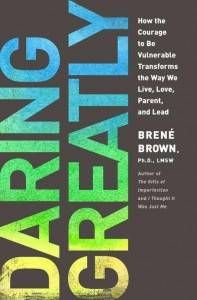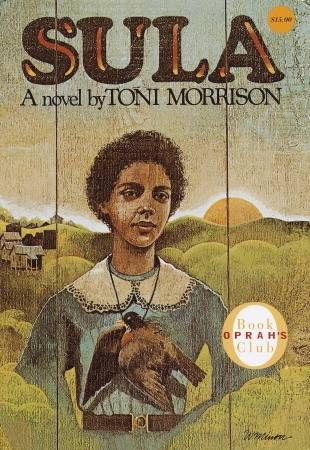
What to Read Through Your Quarter-Life Crisis (The Best of Book Riot)
Much of the good ship Book Riot is off at Book Expo America this week, so we’re running some of our best stuff from the first half of 2013. We’ll be back with reports from BEA next week and our usual array of new book-nerdery.
____________________________
Something happens when you reach your mid-20s. And it ain’t pretty. Your friends start pairing off and getting married and having kids. You might pair off and get married and kids. Homes are acquired, debut is accrued, and “do what you love” often becomes “do anything that will pay the bills even if you hate it, and resign yourself to doing what you love on the weekends.” That “real world” adults have been telling you about for so long hits you square in the face, and to make matters worse, now you ARE one of those adults who talks about the big, bad, horrible, soul-crushing Real World.
You question all your life choices. You make major changes, or you feel paralyzed and afraid to make any changes at all. You’re constantly stressed out. You wonder if you will ever feel completely secure (spoiler alert: nope–if you’re lucky, you just get more secure with the fact that nothing is secure). If you’re me, you quit grad school, move across the country, buy a house, get married, and change careers all in one year. Then you wait four years to realize that what you did that year you were 25 was a quarter-life crisis. For the slightly more self-aware, who know the quarter-life crisis when they’re in the thick of it, I present this recommended reading.
Nonfiction
These are specific recommendations for books that address specific aspects of the quarter-life crisis. They won’t make the same different for everyone, but if you take them heart, they will make a difference.
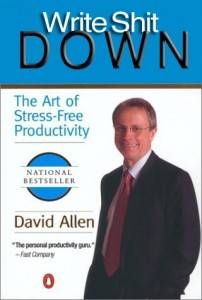 Getting Things Done by David Allen — Feeling out of control and directionless–or headed in the wrong direction on a trajectory you can’t change–is a defining feature of the quarter-life crisis. The first task in David Allen’s GTD system, and the first task in figuring out where you’re going and how to get there, is to write down all the stuff you’ve been thinking about doing and meaning to do but haven’t gotten around to for reasons you can’t quite figure out. Big stuff (buy a house, write a book, go to grad school) goes on the list right alongside small stuff (send Grandma a birthday card). You acknowledge that your head is a horrible place to store information, and you get a clearly defined process for identifying your goals and the steps necessary to accomplish them. Yes, this is a business-focused organization book. But it’s really a LIFE organization system, and it will make you feel saner if you work it. I promise.
Getting Things Done by David Allen — Feeling out of control and directionless–or headed in the wrong direction on a trajectory you can’t change–is a defining feature of the quarter-life crisis. The first task in David Allen’s GTD system, and the first task in figuring out where you’re going and how to get there, is to write down all the stuff you’ve been thinking about doing and meaning to do but haven’t gotten around to for reasons you can’t quite figure out. Big stuff (buy a house, write a book, go to grad school) goes on the list right alongside small stuff (send Grandma a birthday card). You acknowledge that your head is a horrible place to store information, and you get a clearly defined process for identifying your goals and the steps necessary to accomplish them. Yes, this is a business-focused organization book. But it’s really a LIFE organization system, and it will make you feel saner if you work it. I promise.
How to Find Fulfilling Work by Roman Krznaric (coming April 23 from Picador) — Many of us grow up being told to follow our passions and do what we love, and it’s implied (and sometimes stated outright) that if we do that, everything else (money, security, happiness) will follow. It’s a lovely idea, but for most of us, there is a real tension between our desire to do work we love and thrive in and our need to pay the bills and put food on the table. To survive. Drawing on work from thinkers across many disciplines, eras, and cultures, Krznaric explores how we might resolve that tension, find fulfilling work (or find ways to make the work we have fulfilling), and overcome the fear of taking risks and making changes. This one’s a little thinky, but let’s be real, you need to do some real thinking about your life. So get on it.
Daring Greatly by Brené Brown — By the time your quarter-life crisis hits, you’ve lived enough to have experienced something–at home, at school, at work, maybe at all three–that gave you reason to fear the consequences of revealing your true self or sharing all your ideas. Brown blends research-driven theory (yay, data!) with self-help to reveal why we have such a hard time allowing ourselves to be vulnerable, and what we can do to change that. This is a book about learning to do the scary things because they are often the most rewarding, and about how our lives open up when we show up and let ourselves be seen. It will give you a new perspective on yourself, your loved ones, and your coworkers, and it will change the way you think about taking risks.
Letters to a Young Poet by Rainer Maria Rilke — For inspiration, warmth, beauty, and evidence that there’s life on the other side of your present angst. Quarter-life crisis sufferers would be smart to keep a copy by the bed and read a bit every night, reading the book over and over until it sinks into your bones.
Tiny Beautiful Things by Cheryl Strayed — Comprised of letters Strayed wrote to readers who submitted requests for advice to her beloved Dear Sugar column at The Rumpus, Tiny Beautiful Things is packed with heart, wisdom, humility, and a reminder on every page that we are all broken. With tenderness and tough love, Strayed pushes us to know that we make ourselves, and it’s up to us to make ourselves whole. Someone in these pages will have the problem you have had or are having. Many someones will have it much worse. You will get perspective and reassurance and at least one that’s-exactly-what-I-needed-to-hear moment.
Level up: When Women Were Birds by Terry Tempest Williams — This book changed my life. I think it can change yours too.
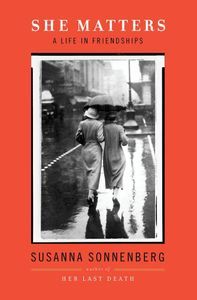 She Matters: A Life in Friendships by Susanna Sonnenberg — Life is hard. You need good friends. Chapter by chapter, Sonnenberg offers up her own friendships–the successes, the failures, the warmth, and the wrongdoing–by way of example and exploration. In so doing, she invites us to consider the kinds of friends we have and the kind of friend we are. The book is about women’s friendships with each other, but I think male readers would be well served by it as well. There’s great vulnerability and candor here, and an always-useful reminder that at its core, friendship is about showing up. “How simple: you witness and love, and you feel loved.” Read this. Think about your friendships. Make them better and stronger and truer.
She Matters: A Life in Friendships by Susanna Sonnenberg — Life is hard. You need good friends. Chapter by chapter, Sonnenberg offers up her own friendships–the successes, the failures, the warmth, and the wrongdoing–by way of example and exploration. In so doing, she invites us to consider the kinds of friends we have and the kind of friend we are. The book is about women’s friendships with each other, but I think male readers would be well served by it as well. There’s great vulnerability and candor here, and an always-useful reminder that at its core, friendship is about showing up. “How simple: you witness and love, and you feel loved.” Read this. Think about your friendships. Make them better and stronger and truer.
The Guide to Getting It On edited by Paul Joannides — Hey, you’re having an identity crisis, but that doesn’t mean you can’t have great sex. In fact, having great sex–which means figuring out what you want and how to ask for it–will make your crisis easier to bear. And it’ll be fun! The Guide to Getting It On is the most comprehensive and inclusive sex guide I’ve seen. If you’ve wondered about it, it’s in here. Ask your questions, get some answers, and get frisky like a grown-up. It’s time for you to know some things.
Why Have Kids? by Jessica Valenti — The traditional cultural narrative calls for love, marriage, and a baby carriage, in that order, and it’s easy to start moving from one step to the next, ticking the boxes along the way, without really thinking about what you’re doing. You just do the next thing because it’s the next thing on the list. And you know? That’s not a great way to make life decisions. Noted feminist writer Jessica Valenti, who wrote the book while expecting her first child, calls the narrative itself into question, calls for change in our communities and our workplaces, and presents research-driven data about why people choose to have children (or not), what happens to their relationships and careers after they do (or don’t), and what we get wrong about how we think and talk about parenting (a lot). You’re having a quarter-life crisis and figuring out what you really want. Go ahead and start thinking about how kids factor into that now.
Fiction
Fiction is basically guaranteed to affect each reader differently–you know the old saying about how no two readers read the same book–so these are general themes/categories to guide your quarter-life fiction selections
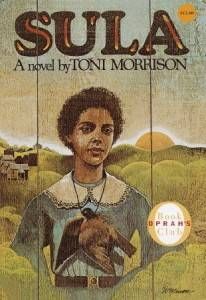 Reread something that connects you to who you are at your core. — This should be an old favorite, something you know so well that it’s practically a part of your DNA. Think of the books that are touchstones in your life, and go back to them. If you have old copies with your notes still in them, even better. Pay attention to how the book affects you now in comparison to how it affected you the last time you read it. Realize that you have grown, and you’ve gone through some stuff since the last time you read it, and you are going to continue growing and continue having great books to return to when you feel like you don’t know who you are. For me, these fundamental reads are The Giver by Lois Lowry, Fahrenheit 451 by Ray Bradbury, and Sula by Toni Morrison.
Reread something that connects you to who you are at your core. — This should be an old favorite, something you know so well that it’s practically a part of your DNA. Think of the books that are touchstones in your life, and go back to them. If you have old copies with your notes still in them, even better. Pay attention to how the book affects you now in comparison to how it affected you the last time you read it. Realize that you have grown, and you’ve gone through some stuff since the last time you read it, and you are going to continue growing and continue having great books to return to when you feel like you don’t know who you are. For me, these fundamental reads are The Giver by Lois Lowry, Fahrenheit 451 by Ray Bradbury, and Sula by Toni Morrison.
Read a novel that will remind you that life is long, and things mostly turn out OK. — When you’re trudging through the muck and existential angst of a quarter-life crisis, it’s all too easy to convince yourself that you’re going to feel this way forever. But the problems and the joys (there ARE joys) you’re experiencing at 25 or thereabouts are distinct from the ones you’ll face in middle age and the so-called golden years. Read books that present characters’ whole lives. Be reminded that difficult days/weeks/months/years are temporary, and that a lot of wonderful stuff happens in between to make the tough times worth it. My personal picks here: Stoner by John Williams, I Married You for Happiness by Lily Tuck, A Prayer for Owen Meany by John Irving, and Gilead by Marilynne Robinson.
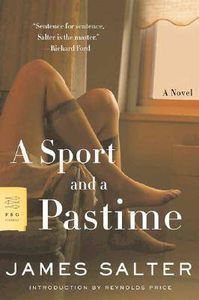 Read about how nothing is permanent…but that doesn’t mean you can’t enjoy it. — That nothing–happens, sadness, love, lust, despair, joy–is permanent is one of the truths of life you’ll spend your quarter-life crisis coming to terms with. We want the good moments to last forever, of course we do, and when we’re in the middle of them they can feel infinite. A reminder that even the best feelings are fleeting can be a buzzkill. Don’t let it be one. Instead, read books that celebrate the kind of living-in-the-moment-ness that allows us to enjoy every last bit of pleasure and joy while we can. My pick here is James Salter’s A Sport and a Pastime (bonus: steamy and wonderfully written sex!). Fellow Rioter Jeff recommends Colson Whitehead’s Sag Harbor.
Read about how nothing is permanent…but that doesn’t mean you can’t enjoy it. — That nothing–happens, sadness, love, lust, despair, joy–is permanent is one of the truths of life you’ll spend your quarter-life crisis coming to terms with. We want the good moments to last forever, of course we do, and when we’re in the middle of them they can feel infinite. A reminder that even the best feelings are fleeting can be a buzzkill. Don’t let it be one. Instead, read books that celebrate the kind of living-in-the-moment-ness that allows us to enjoy every last bit of pleasure and joy while we can. My pick here is James Salter’s A Sport and a Pastime (bonus: steamy and wonderfully written sex!). Fellow Rioter Jeff recommends Colson Whitehead’s Sag Harbor.
Read about long-term relationships and what it means to commit to someone else. — Making sense of the insane discrepancies between how our culture presents long-term relationships and marriage and how they actually are is a critical task for the 20-something. No amount of being told that you can’t understand marriage until you experience will make a difference, so instead, put yourself inside others’ experiences through fiction and let writers tell you the truth through their lies. Personal recommendations in this category include (again) Lily Tuck’s I Married You for Happiness, Mr. Peanut by Adam Ross (for an honest look at the dark side of marriage), Joshua Henkin’s Matrimony, and J. Courtney Sullivan’s forthcoming The Engagements.
Read a novel that asks big questions about faith and spirituality. — Part of questioning what you want to do with your life is questioning the very meaning of life. Now that you’re far enough into adulthood to have some distance from the beliefs you were raised with, it’s time to take a look at your options and consider what role, if any, a religious or spiritual practice will play in your life. Many novels attempt to address these questions, but few, in my experience, do it really well. My picks are The Sparrow by Mary Doria Russell (one of my all-time top five books), Siddhartha by Herman Hesse (Preeti explains why here), and (again) Gilead by Marilynne Robinson. If your version of spirituality involves simply feeling in awe of the bigness of the universe, add Pam Houston’s short stories and her novel Contents May Have Shifted to the pile.
Read books that are sheer fun. — Why? Because you need to get out of your head, and reading is great for escapism. Skippy Dies by Paul Murray, Angelmaker by Nick Harkaway, delightfully rompy romance novels (I love Sarah MacLean), high fantasy, whatever. If it feels good, do it.
How’d I do, readers? What books or categories would you add?
_________________________
Sign up for our newsletter to have the best of Book Riot delivered straight to your inbox every two weeks. No spam. We promise.
____________________________
Sign up for our newsletter to have the best of Book Riot delivered straight to your inbox every two weeks. No spam. We promise.
To keep up with Book Riot on a daily basis, follow us on Twitter, like us on Facebook, , and subscribe to the Book Riot podcast in iTunes or via RSS. So much bookish goodness–all day, every day.



